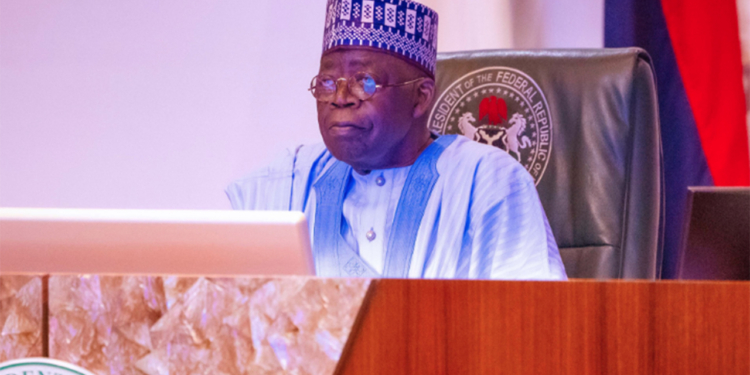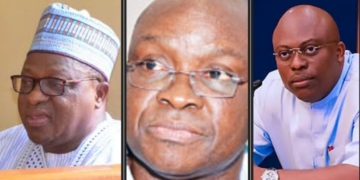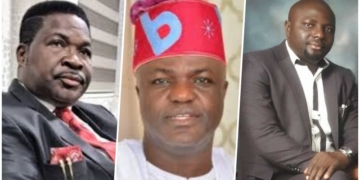The Tinubu administration commenced officially on the 29th of May, 2023, after a controversial election that brought him into power.
Tinubu’s campaign promises before his emergence included reforming the education sector by focusing on quality, access, funding, management, effectiveness, and competitiveness, and providing good and quality education in tune with 21st-century demands. He also promised to establish more education opportunities. The universities will be autonomous, ensuring that students can get student loans, adding that “Our educational reforms will equip talented youth with skills needed to be globally competitive.”
He also promised to invest ‘heavily’ in infrastructure to allow for proper integration of school-age children into conventional schools.
This article analyzes his efforts in the education sector in the one year of his administration.
Student Loan Scheme
The Student Loan Scheme has been a major education focal point in Tinubu’s administration. President Bola Tinubu in April, signed the new Student Loans (Access to Higher Education) (Repeal and Re-enactment) Bill 2024 into law. This legislation aims to guarantee sustainable higher education and functional skill development for all Nigerian students and youths.
The Fund is domiciled with, managed, and administered by the Central Bank of Nigeria through money deposit banks in Nigeria, and available to eligible students who need money to pay for school tuition fees in public institutions.
However, this initiative was followed by several controversies, with the Academic Staff Union of Universities (ASUU) and the Academic Staff Union of Polytechnics (ASUP) opposing it. Both ASUU and ASUP opined that the foundation for the scheme to fail has already been laid, adding that when repayment becomes impossible, the fund would simply dry up.
The ASUU chairman, Prof. Emmanuel Osodeke, noted that “It may not ultimately benefit the children of the poor, and even if it does, it will just put a debt burden on them,” an opinion supported by ASUP.
Shortly after the student loan scheme was introduced, tertiary institutions began recording hikes in tuition fees, an effort the Federal Ministry of Education says is not connected with the Student Loans Act.
DOTS Policy
On April 18, Tinubu approved several policies captured as DOTS, an acronym representing: Data Repository, Out-of-School Children Education, Teacher Training & Development, and Skill Development & Acquisition.
On Data Repository, President Tinubu approved an extensive census to collect data on All schools in Nigeria (from primary to tertiary levels), including their conditions, facilities, proximity, and infrastructure, all teachers in Nigeria, including their qualifications and training support, and all pupils and students, with gender-specific information and exam grades.
Also, the policy will offer education and training support to Out-of-School Children. Under this policy, the Federal Ministry of Education will provide training to teachers in digital skills and also enhance Skill Development and Acquisition for All Levels.
However, according to Gideon Adeyeni, Programme Officer at Corporate Accountability and Public Participation Africa (CAPPA), while commending this policy, emphasized that the commitment to attaining these aspirations must be assessed based on government investment in the education sector.
According to him, the Tinubu administration allocated N2.18 trillion for education representing approximately 7.9% of the total N27.5 trillion 2024 national budget, an amount that is paltry when compared with the recommended 15 -20 percent recommended by UNESCO and which education rights campaigners have been calling for over the years.
While reacting to the Student Loan Scheme, Adeyeni noted that the commendation from groups like the National Association Of Nigerian Students (NANS) was hasty.
“ The Needs Assessment of Nigerian Public Universities (CNANU) of 2012 estimated that about #1.3 was needed to revamp public universities alone as at the time. With the inflation rate and depreciation in the value of naira, the needed amount has very likely doubled or tripled by now.
“With the funding for NELFUND to be sourced primarily from 1% of all taxes, levies, and duties collected by the Federal Inland Revenue Service (FIRS) and other sources, the possibility of the scheme and other funding mechanisms available in Nigeria to provide adequate fund for the education sector is unlikely. There is no alternative to ensuring adequate budgetary allocation to education.”
He emphasized that although it is still early and difficult to find data to assess the change in the quality of education over the past year, available evidence suggests strongly that education accessibility has reduced.
“In anticipation of the student loan scheme, many universities and other higher education institutions across the country started increasing payable fees, making access more difficult for education seekers from poor and low-income households
” But again, on the quality of education under the present administration, we all know what the quality of education was before now. Aside the very low pass rate of secondary school leaving and university entrance examinations, the very fact that only the children of the very poor and low-income members of the society who cannot afford the fees of fast proliferating private primary and secondary schools are left there is sufficient proof of the how the low quality of the education obtainable in these schools is well known.” He said.
He emphasized that a radical programmatic and policy change is needed to revamp public education in the country, adding that that nothing drastic has actually happened in the education sector in the last year.
“It would be correct that a radical programmatic and policy change is needed to revamp public education in the country. The best that the Tinubu administration has done in the education are the student loan and DOTS policies, which are just taking off, so that it is convenient to say that nothing drastic has actually happened in the education sector in the last year. The quality of education has therefore either remained or deteriorated over the period.
“With a stagnated or deteriorated quality of education, and reduced access to it, will it be right to say that the present administration has done well in the education sector in its first year? I am not sure that the answer is yes,” he said.




Discussion about this post